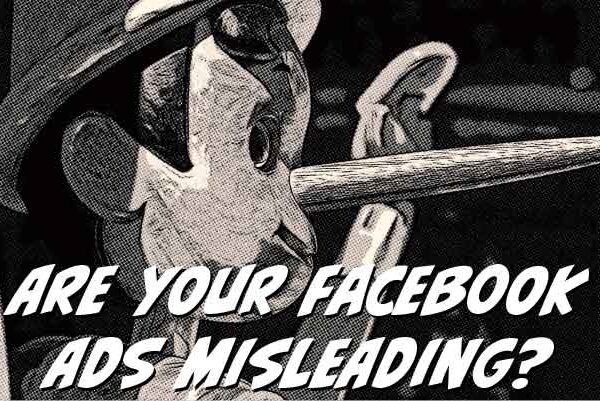Fasten your seat belts, entrepreneurial daredevils because we’re about to take a daring dive into the compelling world of slow economies. While it might sound as thrilling as watching paint dry, rest assured, this expedition promises to be as lively and captivating as stand-up comedy. Let’s stride ahead, shall we?
Picture this: the economy decides to move as slow as a sloth on a Sunday afternoon, and business growth feels as challenging as running on a stair climber set too high while juggling flaming torches. The immediate instinct? Curl up, pull the covers over your head, and wait for the economic sunshine to return. However, prepare to have your minds blown as we embark on a journey of how to level up big in a slow economy.

How Past Companies Managed an Economic Downturn
Here’s where we drop our first truth bomb. According to a detailed study conducted by the lovely sages at the Harvard Business Review, most companies get swallowed up whole by a recession. I’m paraphrasing, of course. Many small business owners and leaders were forced to close their doors for good, while others, once leaders in their field, slipped so far back that they came within inches of the recession’s “wood chipper.” And yet, there are always outliers, 9 percent, to be exact1. These companies did better than survive a slow economic growth period; they thrived!
Their secret sauce?
A perfect blend of defensive strategies (think cost-cutting measures) and offensive strategies (think investing in innovation for future growth).
Half of this sounds like a no-brainer (of course, you should cut costs) but the other half―like throwing your weight behind a business growth strategy during an economic slowdown―seems as counterintuitive as putting pineapple on pizza.
Now, I can sense you scratching your heads, your eyebrows creeping higher than the adrenaline of a skydiver on a caffeine high. So, let’s delve deeper.
What Strategic Spending Looks Like
Before I get into the topic of strategic spending, can we agree that, for many businesses, when an economic slowdown hits, the tendency is to go into energy saver mode? Many competitors will step off the gas, opt for a pit stop, or even park themselves for a while. Maybe they believe they have enough of a buffer to stay ahead. Maybe they feel that if business opportunities are sluggish for them, they’re sluggish for everyone: there’s no chance other businesses will catch up to them.
In fact, they behave somewhat like the hare in Aesop’s famous fable, deciding to catch forty winks under a tree and leaving the tortoise a clear path to victory. In business terms, it’s an unparalleled opportunity to step up your game (if you’re the tortoise in this story) and seize many new opportunities.

“Wait a minute,” you might argue. “I’m barely keeping my head above water. Talking about investing in innovation feels like planning a space mission while struggling to pay for gasoline!” Absolutely valid point. But remember, we’re not advocating for a spending spree here. It’s about making wise, calculated investments that fuel your long-term business growth. As the saying goes, you can’t accumulate if you don’t speculate, and no, this wisdom nugget wasn’t derived from a fortune cookie.
Where To Channel Your Efforts

Focus on the Market Share You Already Have
While it’s tempting to chase after new customers with brand-new marketing strategies, a fantastic starting point for your marketing efforts would be to nurture your existing customer base. Research by Small Business Trends suggests that a whopping 65 percent of a company’s business comes from existing customers2. So, it makes sense to focus on customer retention, and the efforts yield handsome dividends, both literally and metaphorically.
Nurturing your business’s customer base is like giving your adorable houseplant, Philodendron Phil, staple nutrients that keep it alive and healthy. You ensure he’s watered with returning clients, well-lit with retargeting ads, and loved through excellent customer service. In return, Philodendron Phil sustains slow and steady growth, even as competitors begin to whither.
Lean Into Innovation
Again, we’re not talking about getting wild ventures, like investing in a fleet of drone cars so your taxi service is guaranteed to beat that light off Route 23―the one that has everyone sitting there for five minutes, contemplating the direction their life has taken. No, there are clever ways to innovate, even during the lean years. A 2020 study conducted by McKinsey & Company revealed that companies who stuck it out with their quest to invest in innovation did 10 percent better than their non-innovating peers during the recession and roughly 30 percent better 36 months after the recession3.
It’s like waking up to the sounds of a violin. You discover it’s coming from Philodendron Phil! All your nurturing has given him abilities no other plant has. Suddenly, Phil is more than a houseplant, he’s the Mozart of the plant world, and everyone is drawn to him.

Discover the Profitability in Team Building
Not all investments require money. Investing in your company’s culture and your team’s well-being is another vital aspect of leaning into growth. Gallup research has shown that businesses with highly engaged teams show 21 percent greater profitability4.
Also, when you stand by your team during tough economic times, you earn their loyalty and commitment. It’s similar to Philodendron Phil’s remarkable resilience. Through a curated plant food diet and maybe a little fertilizer, you see new buds forming, and you realize Phil has more to offer than you initially thought.
Cutting Down on the Right Costs
A key element to successfully leaning into growth during a slow economy is strategic cost-cutting. Note the emphasis on “strategic.” We’re not suggesting a frenzied, cut-everything-that-moves approach. Instead, it’s about trimming the fat, focusing on efficiency, and cutting back on non-essentials. It’s like realizing that Phil doesn’t need a personalized greenhouse. You can perfectly maintain ideal conditions for his growth and development from your windowsill.
Capitalize on Opportunities to Expand
A sluggish economy is also an excellent time to expand your market. Contrary to the instinct of hunkering down, reaching out to new markets can pay off, big time. A trend that has been noted in the Profit Impact Marketing Strategies (PIMS) database is that companies that cut back on marketing enjoy a higher Return on Capital Employed during the recession. Still, during the recovery years and after that, they quickly lost out to the companies who never let up on marketing5.
So, don’t hesitate to introduce Philodendron Phil and his violin skills to a wider audience, buy new instruments for Phil at a fraction of the cost from competitors who are too weak to play them, or team up with other businesses that have complementary interests. Who knows, you might just start a new band in the world of musical houseplants: Philodendron Phil and Collins, the Drum-playing Cactus. Now, that’s an act many would pay to see!
Summing up, in a slow economy, leaning into business growth isn’t just a wild gambit; it’s a calculated, strategic move that can position your business for accelerated success when the economy bounces back. It’s not about playing Russian roulette with your resources; it’s about playing a masterful game of chess, where each move ensures that you emerge as the ultimate victor, even if it feels like you’re playing chess at a turtle’s pace.
So, to all the entrepreneurial gladiators out there, remember, in the race of business, particularly in a slow economy, the tortoise often wins. It’s time to shake off the hare’s overconfidence, embrace persistence, and lean into growth. A sluggish economy isn’t a death sentence; it’s an opportunity to reassess, reinvest, and rise stronger.
Black and white line art of a sloth, illustrated in landscape mode.
And I know a lot of this is easier said than done.
If you’re reading this and you feel like you could use a little coaching to help scale your business, guess what?
I’ve got 30-minute slots available for serious business owners who want to break out of their current status and level up.
Fill out the form below and choose Business Consulting.
- Roaring Out of Recession, Harvard Business Review
- CUSTOMER RETENTION STATISTICS – The Ultimate Collection for Small Business, Small Business Review
- Innovation in a crisis: Why it is more critical than ever, McKinsey & Company
- Employee Engagement on the Rise in the U.S., Gallup
- Marketing During Recession: To Spend or Not to Spend?, Nigel Hollis, 2008





